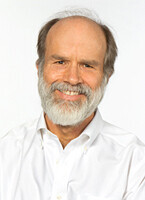hankyoreh
Links to other country sites 다른 나라 사이트 링크
Ramseyer admits making “mistake” with citation in comfort women paper

J. Mark Ramseyer, the Harvard Law School professor who described the former comfort women as prostitutes in an academic paper, admitted that he didn’t see any contracts signed by Korean comfort women, which would have served as evidence to back up his claims.
Jeannie Suk Gersen, also a professor at Harvard Law School, quoted Ramseyer to that effect in an article titled “Seeking the True Story of the Comfort Women” that was posted to the website of the New Yorker magazine on Feb. 26.
Ramseyer’s paper “Contracting for Sex in the Pacific War” ignited controversy with its claim that the comfort women were voluntary prostitutes. But when Gersen asked him about his paper, he said, “I don’t have any Korean contracts.”
“I thought it would be cool if we could get the contracts [for Korean comfort women]. But I haven’t been able to find it. Certainly you’re not going to find it,” Gersen quoted him as saying.
On Feb. 17, two other Harvard professors — Andrew Gordon, a professor in the Department of History, and Carter Eckert, a professor in the Department of East Asian Languages and Civilizations — published a critical response to Ramseyer’s article in which they tracked down his citations.
“So far as we and other scholars can determine,” Gorgon and Eckert wrote, Ramseyer “has not consulted a single actual contract concluded between a Korean comfort woman, or her family, and a recruiter or a comfort station.”
Gersen quoted Ramseyer has having “explained that he was ‘building on’ an article he’d written in 1991 about indentured-servitude contracts for prostitution in prewar Japan.”
Ramseyer acknowledged to Gersen that he had completely misrepresented some sources in what he described as a “mistake.”
For example, Ramseyer wrote that a 10-year-old Japanese girl named Osaki had voluntarily agreed to go to Borneo and become a prostitute.
“When Osaki turned ten, a recruiter stopped by and offered her 300 yen upfront if she would agree to go abroad. The recruiter did not try to trick her; even at age ten, she knew what the job entailed,” Ramseyer wrote.
But when scholars consulted the book that Ramseyer had cited, they found that Osaki and other young girls complained to the recruiter that he hadn’t told them they would be doing that kind of work.
“I don’t know how this happened, but I did in fact make a mistake here,” Ramseyer told Gersen in an email.
Ramseyer also emailed Gersen to say that there were people in Korea, Japan and elsewhere who supported him, including the authors of “Anti-Japan Tribalism,” a book published in South Korea in 2019.
Japanese academics and nonprofits are openly criticizing Ramseyer’s paper for its historical distortions.
Fight for Justice, a Japanese civic group that runs an academic website about the comfort women, announced on Feb. 26 that it is partnering with several historical associations to hold an online seminar on Mar. 14 criticizing Ramseyer’s paper.
Yoshiaki Yoshimi, professor emeritus at Chuo University and Japan’s preeminent authority on the comfort women, will be attending the seminar to address issues with Ramseyer’s paper. In 1992, Yoshimi, found the first documents showing that the Japanese military and government had been deeply involved in setting up the comfort women system.
By Cho Ki-weon & Kim So-youn, staff writers
Please direct comments or questions to [english@hani.co.kr]

Editorial・opinion
![[Editorial] Yoon must halt procurement of SM-3 interceptor missiles [Editorial] Yoon must halt procurement of SM-3 interceptor missiles](https://flexible.img.hani.co.kr/flexible/normal/500/300/imgdb/child/2024/0501/17145495551605_1717145495195344.jpg) [Editorial] Yoon must halt procurement of SM-3 interceptor missiles
[Editorial] Yoon must halt procurement of SM-3 interceptor missiles![[Guest essay] Maybe Korea’s rapid population decline is an opportunity, not a crisis [Guest essay] Maybe Korea’s rapid population decline is an opportunity, not a crisis](https://flexible.img.hani.co.kr/flexible/normal/500/300/imgdb/original/2024/0430/9417144634983596.jpg) [Guest essay] Maybe Korea’s rapid population decline is an opportunity, not a crisis
[Guest essay] Maybe Korea’s rapid population decline is an opportunity, not a crisis- [Column] Can Yoon steer diplomacy with Russia, China back on track?
- [Column] Season 2 of special prosecutor probe may be coming to Korea soon
- [Column] Park Geun-hye déjà vu in Yoon Suk-yeol
- [Editorial] New weight of N. Korea’s nuclear threats makes dialogue all the more urgent
- [Guest essay] The real reason Korea’s new right wants to dub Rhee a founding father
- [Column] ‘Choson’: Is it time we start referring to N. Korea in its own terms?
- [Editorial] Japan’s rewriting of history with Korea has gone too far
- [Column] The president’s questionable capacity for dialogue
Most viewed articles
- 1Months and months of overdue wages are pushing migrant workers in Korea into debt
- 2Trump asks why US would defend Korea, hints at hiking Seoul’s defense cost burden
- 3[Editorial] Yoon must halt procurement of SM-3 interceptor missiles
- 4At heart of West’s handwringing over Chinese ‘overcapacity,’ a battle to lead key future industries
- 5[Guest essay] Maybe Korea’s rapid population decline is an opportunity, not a crisis
- 6Fruitless Yoon-Lee summit inflames partisan tensions in Korea
- 7First meeting between Yoon, Lee in 2 years ends without compromise or agreement
- 8Under conservative chief, Korea’s TRC brands teenage wartime massacre victims as traitors
- 9Dermatology, plastic surgery drove record medical tourism to Korea in 2023
- 10[Column] Park Geun-hye déjà vu in Yoon Suk-yeol